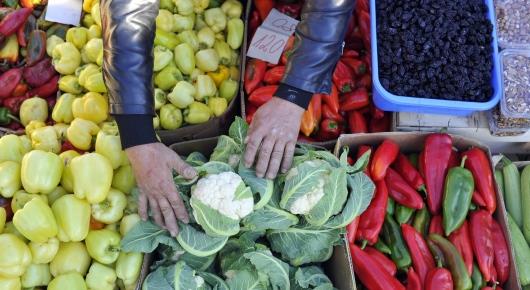Cooperatives key to fruit and vegetable integration in Montenegro

Today, a number actors in Montenegro’s fruit and vegetable value chains – including producers, retailers, and the Ministry of Agriculture and Rural Development – came together at a workshop in Podgorica, Montenegro, to discuss the benefits of agricultural cooperatives.
The workshop was organised by the Food and Agriculture Organization of the United Nations (FAO) and the European Bank for Reconstruction and Development (EBRD), which are helping to strengthen Montenegro’s fruit and vegetable supply chain and link small-scale producers to high-value markets.
The workshop focused on the importance of agricultural cooperatives in improving linkages among farmers and retailers, and it highlighted the strength of collective action.
Aligning with EU standards
The workshop also provided an opportunity for the Ministry to present the country’s newly enacted European Union-harmonized rulebook on minimum standards for the production and commercialization of fruit and vegetable products.
This is part of a push to align the country’s quality and market standards with the European Union (EU) and thereby enhance value-chain integration opportunities for Montenegrin fruit and vegetable producers. Better integration into the value chain would help these producers increase market opportunities and achieve higher prices for their products.
“With an eye on external markets, particularly the EU’s common market, sustainable value chain integration can catalyse development in the country and improve incomes for many,” said FAO economist Lisa Paglietti.
“In tandem, becoming better organized through agricultural cooperatives can ensure the efficiency and competitiveness of the Montenegrin fruit and vegetable sector, consolidating supply and exploiting economies of scale.”
The workshop was an opportunity for participants to share views and to learn from the experiences of a large Italian cooperative in such areas as local procurement, food safety and quality standards, logistics management, and the packaging and labelling of fresh produce – all in line with EU regulations and standards.
FAO and the EBRD have been working in a number of countries across the Balkans to foster sustainable value chains and upgrade food quality standards. Notable success stories include engagement in the horticultural sectors in Serbia and Croatia and in Montenegro’s meat sector.
“Linking small producers with large agribusinesses has helped to add value to agrifood products and upgrade quality standards, as well as to connect local producers to higher-quality markets,” said Jaap Sprey, Head of the EBRD Resident Office in Montenegro.
7 November 2018, Podgorica, Montenegro
